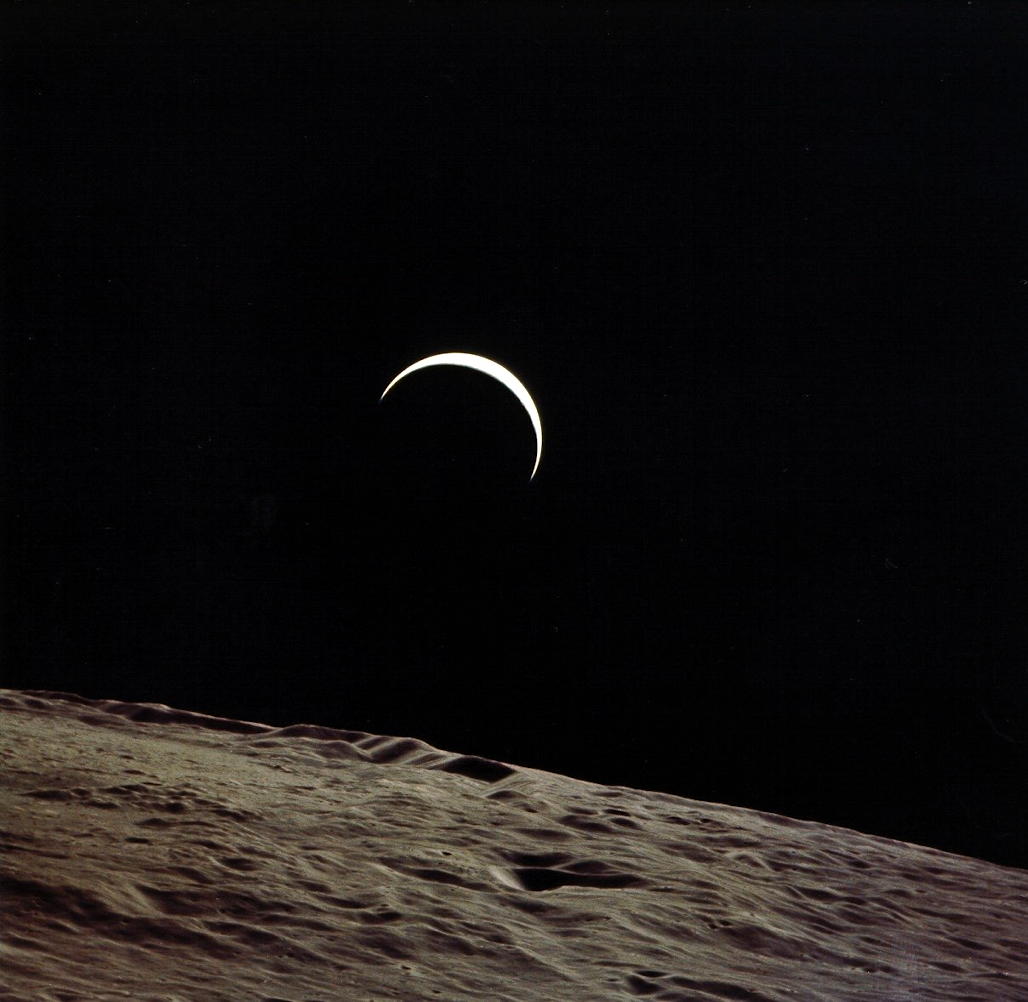Homesteading the moon

What lies beyond the far craters, as the Earth rises in the lunar dawn?
Presidential aspirant Newt Gingrich wants NASA to offer prizes to encourage private industry to put men back on the moon. It’s not a bad idea except insofar as it’s likely to be counterproductive: getting to the moon is expensive; anyone who wants the prize will be in the race for the price, and not for the moon. They’ll do the minimum necessary to meet the rules necessary to win, and that is not likely to be in the spirit of the competition.
Prizes will only encourage private development up to and including the worth of the prize. If the money is set to be, say, $10,000,000, then no solutions costing more than ten million will be seriously looked at.
And then once they win the prize, they’re done. What is the incentive for them to go further? This is the kind of half-step that I’d expect from a politician. Businesses often offer prizes, but they do so to solve a particular problem, not a general one. They want assurances that when someone wins the prize the results of that win are useful and the effort was a serious effort at solving a problem that allows the business or consortium to move to a next step.
If we want businesses to start taking lunar colonies or lunar exploration seriously, we need to be just as serious when it comes to the rewards. If our goal is to find out what’s on the moon, and to find out how the moon’s resources can improve our life here on Earth, the best way to encourage lunar exploration is by updating homesteading to the space age: if you can get there, and land there, and stay there, you own it. You own your 160 acres or 320 acres or whatever on the moon, and you have rights to all minerals and other resources on or under your little section of the moon.

Under lunar homesteading, the resources used to get to the moon will match the benefits to be derived from getting there. If there are great rewards to be gained by establishing bases on the moon, businesses will make sure they get there.
It’s important to tie the incentive to ownership because we don’t really know what the worth is of the resources on the moon. A prize doesn’t provide any incentive to find out. Ownership does. Even if nobody goes to the moon we’ll still see innovations in finding out what resources the moon holds. That alone will be worth a lot in unrelated industries: remote sensing technologies will be developed to find out what’s on the moon before sending any people or equipment there.
And if it looks like something might be there, the next step will be a boom in remote robotics technology and miniature space flights. These lunar probes won’t be bringing a couple of moon rocks back. They’ll analyze on the surface, they’ll dig deep, and they’ll send back streams of high quality data that advance our understanding of the moon, the solar system, and how these things are formed. And the advances in remote robotics alone will spur a dozen new industries.1
And if it turns out there’s something there worth getting, we’ll get the benefit of that, too. There will be a purpose to being on the moon that drives men to it.
Allow ownership of the moon, and the lunar colonies we end up building won’t be just for the purpose of lifting the human spirit. They’ll improve human life right here on Earth, not as a side-effect of trying to get there, but as the actual purpose.
Which will not involve tang and dried ice cream.
↑
- Homestead Act at Wikipedia
- “The law required three steps: file an application, improve the land, and file for deed of title. Anyone who had never taken up arms against the U.S. government, including freed slaves, could file an application to claim a federal land grant. The occupant also had to be 21 or older, had to live on the land for five years and show evidence of having made improvements.”
- Newt! In! Space!: Katherine Mangu-Ward at Reason Magazine
- “But many of his explicit points were excellent—and consistent with the current push for more reliance on the private sector—especially the 10 percent of NASA’s budget he proposed setting aside for prizes to encourage private spending and innovation.” (Memeorandum thread)
- The Planet Strappers
- The Archer Five came in a big packing box, bound with steel ribbons and marked, This end up—handle with care. It was delivered at a subsidized government surplus price of fifty dollars to Hendricks’ Sports and Hobbies Center, a store in Jarviston, Minnesota, that used to deal mostly in skin diving equipment, model plane kits, parts for souping up old cars, and the like. The Archer Five was a bit obsolete for the elegant U.S. Space Force boys—hence the fantastic drop in price from two thousand dollars since only last June.
More Newt Gingrich
- Your candidate is unelectable and stupid
- Unelectable and stupid is no way to go through life, son.
